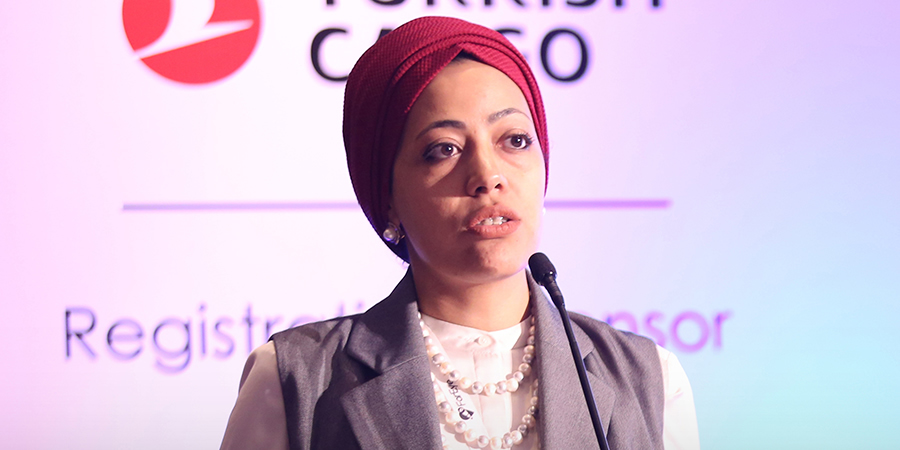The Stephen M. Ross School of Business at the University of Michigan recently announced the winners of its inaugural GCC Women’s Empowerment Scholarship. Recognizing the critical and growing role that women’s empowerment plays in the region, the scholarship aims to develop and enhance the leadership skills of GCC executives with a commitment to gender diversity and women’s empowerment. One of the winners of the scholarship is Heba Sayed, marketing manager, IBM, Watson Customer Engagement, Middle East & Africa.
Ms. Sayed frequently contributes to her community’s ecosystem of youth, startups and female leaders through mentorship, public speaking and knowledge sharing, including events with Young Arab Leaders, Emirates Foundation for Youth Development as well as the Women in Digital forum. She has helped hundreds of local talents develop their skills in areas like technology, artificial intelligence, personal branding, business planning and development as well as marketing and media, and has recently been selected by LinkedIn as one of 10 Top Voices in Gulf region for her contributions to sparking thoughtful conversations about the role of technology in transforming many industries and professions.
Telecom Review secured an exclusive interview with Sayed, where she shared her experience as a female executive in the ICT industry.
Congratulations on receiving the GCC Women’s Empowerment Scholarship. First and foremost, in what way can we promote the participation of women in leadership roles in the ICT industry?
The best way to promote the participation of women in ICT leadership roles is to start early. I think there is an underrepresentation of women in the early career stages in ICT. There needs to be a stronger focus on these young women growing into positive leaders – from early career, to mid-career, to mid-management, to senior management. I think what happens in a lot of companies is that people want to promote women in leadership roles, but they don’t have a big enough of a talent pool to choose from because the foundation wasn’t put in place from the beginning.
What are the main reasons for underrepresentation of women in the ICT industry?
In addition to the above, once you focus on hiring more women at the junior stages of ICT roles, it’s equally as important to move these women through the funnel in progressing them into leaders. This way you have a pool of candidates at every career stage who are ready to go to the next level and don’t get stuck finding the right talent once you get to the executive level. It’s important to have a healthy balance of females to males at every level. If not, you might lose women who tend to drop out of their current positions or go to other industries where they are better represented.
As a woman in a leadership role in the industry, what challenges have you faced in order to succeed, and how did you overcome them?
I am both a wife and a mother of two, so of course finding a balance between my family and work life is always a challenge. The ability to find balance is an element that I always have to think about. I’m lucky to find a company that supports this part of my life and I strongly encourage other companies in their industries to do the same.
The second challenge I would say is perception – I am a female in a male-dominated field. There’s sometimes a misconception that my role is around “events” or “catering”, when really my role is so much more strategic than that. As a marketer, you are the voice of the customer – you must understand their challenges and attack them from a strategic point of view. It’s not just tactical.
Another challenge is just navigating the system – not just within IBM, but within the industry at large. Both the ICT and marketing worlds are moving and transforming at rapid paces, so it can be challenging to keep up. One way that I’ve been able to navigate all of these challenges is through mentorship and sponsorship. I’ve been really lucky to work with others in the field who I trust and who have the ability to see and view things differently than I do. It gives me a fresh perspective and can point me back in the right direction.
Many women are forced to leave their career in the ICT industry due to poor work-life balance. What are some strategies that might improve this?
In addition to embracing a workplace that is supportive of your work-life balance, it’s important to also find support systems outside of your workforce: family, friends and professional networks. All of us – men and women – cannot do it all on our own without supporters around us.
Another thing that I’ve had to embrace is that it’s OK to not be perfect all the time. As much as we would all love to be perfect, it’s impossible to be perfect at everything all at once. The most important thing to do is to just know that there is a balance and notice when there is an imbalance.
There’s a huge future for women in ICT. What advice would you give to aspiring leaders?
Above all, I would recommend aspiring leaders to find their own brand, understanding what makes you unique in everything that you are doing and what are you lacking. Always give yourself a professional review and draft a personal development plan. Ask yourself, what are your skills? What are your edges? What are the skills that you need to get you to where you need to be? This is something that I ensure to do every year. You want to make sure you are relevant not just to your job, but the industry at a whole. From there, it’s important to evaluate the help you need to get you there (class, mentor, etc.). This is just as important in such an ever-changing industry like ICT.
